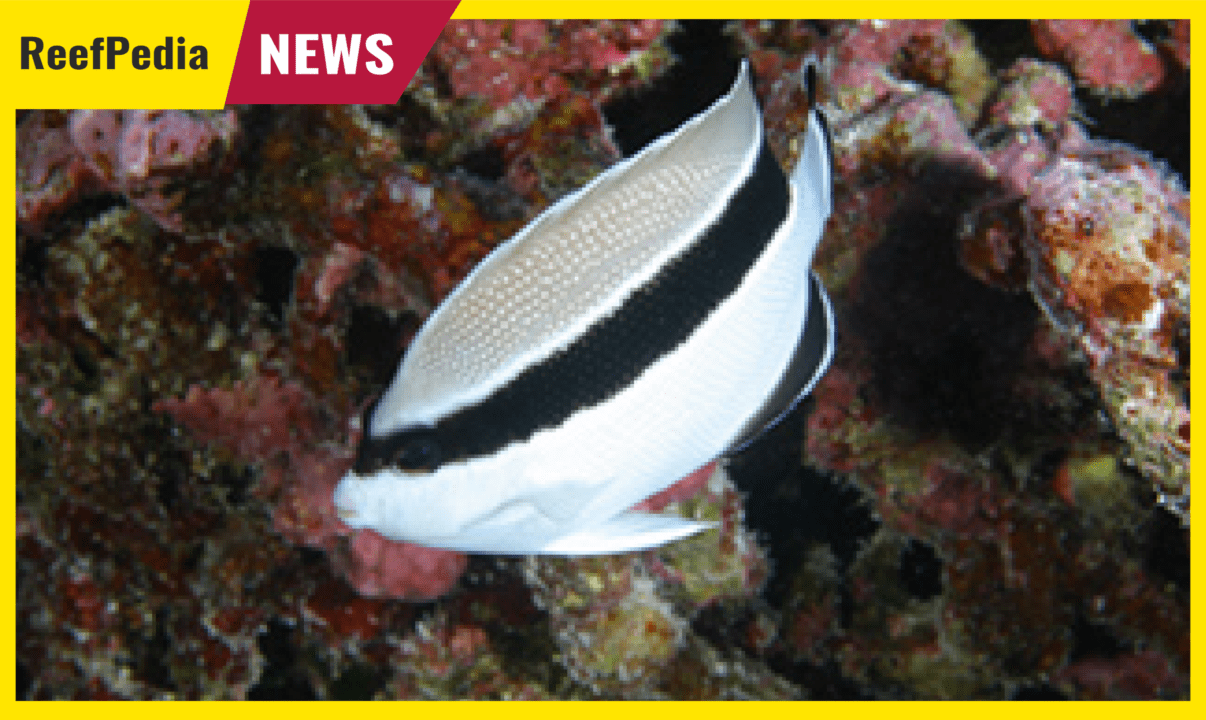Breeding the Bandit Angelfish (Apolemichthys arcuatus) in captivity is a topic that sparks significant interest among breeders and marine aquarium enthusiasts. The Bandit Angelfish, found in the waters of Hawaii and Johnston Atoll, is valued for its unique appearance, including a distinct black stripe running through its white body, which makes it one of the most recognizable Hawaiian fish. The information obtained indicates that the first captive-bred specimens have appeared for sale.
Bandit Angelfish primarily inhabit steep, rocky reefs, where they are observed among coral-rich areas and other hiding places. They are usually found swimming alone or in pairs. These fish prefer depths ranging from 18 to 122 meters, making them difficult to observe and study in their natural environment. Unfortunately, adult specimens typically do not thrive well in captivity due to complex dietary needs, refusal to accept commonly used marine aquarium foods, and decompression-related diseases.
Since 2021, the collection of Bandit Angelfish in Hawaii has been banned. This decision was made to protect natural populations. It should be noted that wild-caught Bandit Angelfish are unlikely to return to the market, even if fishing is resumed, highlighting the importance of breeding this fish in captivity.
Karen Brittain, a pioneer in the breeding of Bandit Angelfish, has made significant progress in their cultivation, which includes successful spawnings and long-term observations of their development. The captive breeding process requires meticulous control over the conditions in which they are kept, including diet and water parameters. Juvenile fish, especially in the early stages of development, require complex care, such as providing high-quality food and stable water conditions, which are essential for their survival and healthy growth.
In addition to Karen Brittain’s achievements, the Japanese wholesaler Kamihata has also had success in breeding this species in captivity. Juveniles have been offered for sale by the company Unique Fins, providing an opportunity to obtain these fish despite the fishing ban. The company is considering offers for a single specimen exceeding $5,000, reflecting their rarity, uniqueness, and high value to marine aquarists.
The captive breeding of Bandit Angelfish plays a crucial role in conserving this beautiful and rare species, providing an alternative source for the aquarium market. Despite existing bans, illegal collection still poses a threat to these fish, making advances in breeding even more critical for their survival and protection.
In summary, offering Bandit Angelfish for sale is excellent news for marine aquarists, as it provides a way to legally obtain these rare fish without harming their natural habitats.
About the author

Grzegorz Bubak
My fascination with marine aquariums began over two decades ago when I stumbled upon an article about this topic in a magazine. Since then, the underwater world has become my obsession and passion, shaping my everyday life. I started my adventure with marine aquariums with soft corals, which were my first step into this fascinating world. Over time, captivated by the diversity and beauty of SPS corals, I decided to focus on their cultivation, which continues to fill me with constant wonder.
Thanks to my experience and passion for marine aquariums, I am ready to share my knowledge and expertise with other enthusiasts in this field. I am happy to be part of the Reef Pedia community, which serves as an invaluable source of information for all marine aquarium lovers.

